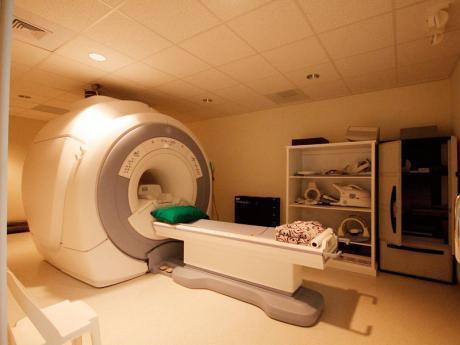Absence of medical machines posing significant problems in hospitals
A patient died while waiting more than 10 hours for a CT scan. The hospital referred him to a private facility because the service was not offered there. Other stakeholders in the health sector shared that there is often a need for machines but oftentimes they are out of order or there is none at all.
Widow threatens to sue CRH after spouse’s death
21 Mar 2023/Sashana Small/Staff Reporter
ELOISE COLLINS is planning to file a lawsuit against the Cornwall Regional Hospital (CRH) in Montego Bay, St James, for alleged lack of quality care and neglect after her 80-year-old husband died while awaiting a computed tomography (CT) scan at a private entity on referral by the hospital.
Collins, a Jamaican-American, told The Gleaner that her American husband, retired offshore boat captain Thomas Collins, fell ill while staying at the couple’s house in Hanover on February 24, less than two weeks after celebrating their 22nd wedding anniversary.
He was taken to a private hospital in St James, where he was diagnosed with inflamed acute pancreatitis.
But Collins said the hospital required a CT scan, which was not offered at the facility, and he was transferred to the CRH about 4 a.m. to access this service and placed in the intensive care unit.
However, Collins said that her husband was told that the CT machine at the main hospital in western Jamaica was not working, and that he would be sent to a private entity in the city to have the scan done.
Under the Government’s public-private partnership in the sector, public hospitals have been accessing some diagnostic services at private entities.
Health Minister Dr Christopher Tufton told The Gleaner recently that the Government spends close to $1 billion each year for patients to access these services in the private sector.
But Collins, who said her husband travels to Jamaica frequently and was making plans to extend their house in Hanover, has always been wary of the Jamaican health system and had expressed this concern to her.
His worst fears were justified as he died waiting for more than 10 hours for the CT scan.
“At the end of the day, he didn’t even get the scan done. He died at the scanning place waiting to get that scan done,” she said.
Collins said they had just celebrated their anniversary on February 14 in Hanover, and she had returned to their home in New Orleans, Louisiana, for work.
She was only able to secure a flight to return to Jamaica on Sunday, February 26 – a day after her husband died.
“The only time I talked to him personally, it was about 2:30 [p.m.] at the scan place, when he said to me, ‘I’m not in a good place. I’m not feeling good’,” she recalled.
Collins said that although her husband suffered from chronic obstructive pulmonary disease, he was very active and all the documentation up to his time at the private scan facility showed that he was “alert, oriented and wake”.
She claimed that it was while he was there that he went under distress, and there was no ambulance available to take him back to the hospital.
“The doctor told me that the medication that he was supposed to get, she didn’t even have that medication out there with him,” the grieving widow told The Gleaner.
MORE COULD BE DONE
And while she accepts that there is no guarantee that the father of three would be alive today if he had got the CT scan, she wished the hospital had done more to keep him alive.
“Say he died, but died while they’re doing something. Say they had rushed him to surgery or something. But don’t have him waiting [for] the period of time that he was sitting down. Doing what?” she asked.
Dr Derek Harvey, senior medical officer at the CRH, told The Gleaner that while he was not aware of the particulars of this case, the CT machine at the hospital breaks down sometimes.
He added that with 20 to 30 CT scan requests per day, oftentimes, the demand exceeds what the single machine at the facility can accommodate.
Harvey also noted that sometimes when these services are outsourced to private entities under the public-private partnerships, the scans are performed more quickly.
The administrator, however, acknowledged the drawbacks of this kind of arrangement, telling The Gleaner that “there could be an issue” with going off-site as there are many logistics to navigate.
“It is going to impact how you do things. If you have to go outside and get something done, there would be a time issue there. The hospital would have to find additional staff to go outside, and additional transportation, so, of course, it does impact the way you do things,” he said, adding that the hospital has only four functional ambulances.
Similar sentiments were shared recently by Kingston Public Hospital (KPH) Senior Medical Officer Dr Natalie Whylie, where the CT and the magnetic resonance imaging machines have been out of operation for one and five years, respectively.
She admitted in a Gleaner interview that the public-private partnership being utilised by the hospital to access diagnostic services hampers the level of efficiency at KPH.
“That means transporting the patient out [and] finding the requisite staff. Sometimes patients may not be stable enough to be transported out,” she said. “The medical team is concerned as well because we really want to be able to make real-time clinical decisions.”
For feedback: contact the Editorial Department at onlinefeedback@gleanerjm.com.

